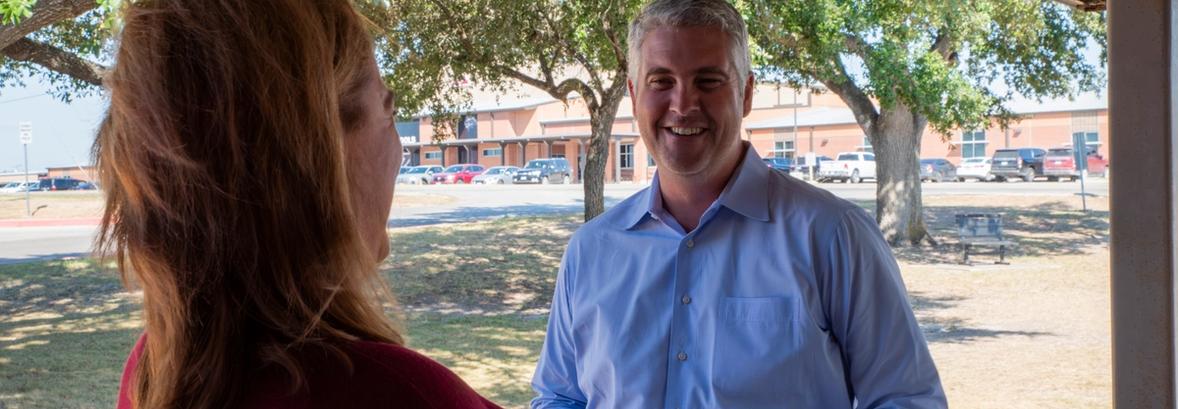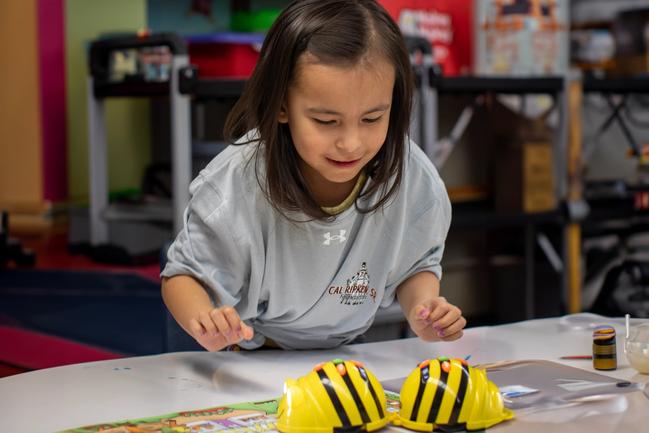

Stakeholder Engagement
At our core, our mission to provide affordable energy underpins socio-economic development in regions where we operate. Fulfilling our mission in a socially responsible way requires collaboration and partnership. To build trust and further understand how our operations may impact communities, we regularly and thoughtfully engage with a variety of stakeholders: landowners, suppliers, community organizations, tribal leaders, lawmakers, local and state elected officials, regulators, industry peers, employees, business partners and others.
We offer stakeholders multiple options for contacting us, including direct contact with our staff, toll-free phone lines, email and social media channels. The results of these conversations serve to deepen our understanding of what’s important to our stakeholders and provide opportunities to collaborate on sustainable solutions.
In 2022, we continued to connect with our stakeholders through virtual and in-person engagements. A growing number of interactions occurred in person as COVID-19-related protocols were relaxed. Our Community Engagement Councils continued to produce valuable insights on the needs of the communities in which we work. Council members, who come from a variety of functional areas and career stages, include employees that work and live in each community as well as Houston-based employees. Their diverse viewpoints provide valuable insights into how we should invest to address local needs.
Our Community Engagement Lead works alongside our Community Engagement Councils and builds deeper relationships in our communities by meeting in person with stakeholders, including local school and government officials, peer companies, local non-profits and community leaders. See our Stakeholder Map for more details of how we engage stakeholders and read more about the efforts of our Government Relations team here.
Engaging with Tribal Communities
When working on a reservation or with a tribal community, we act as an industry partner, developing oil and gas in ways that can create shared value. We are conscientious when operating on sovereign land and respect tribal governments and heritage. We develop good working relationships with tribal leadership and our teams focus on bringing positive outcomes to people in tribal communities by honoring rights, investing in local content and providing community support.
Honoring Indigenous rights
In North Dakota, we have a presence on The Fort Berthold Indian Reservation, home of the Mandan, Hidatsa and Arikara Nation (MHA Nation). For 15 years, we’ve engaged with MHA Nation leaders in our Bakken Asset, discussing infrastructure, economic development, employment opportunities, land access and more. We work closely with the MHA Energy Department on rights-of-way approvals, well locations and spill compliance to find solutions that work for both the MHA Nation and Marathon Oil. As an example, we follow the MHA Nation’s resolution to not place well pads closer than half a mile from Lake Sakakawea, unless otherwise authorized by the Tribe. We also collaborate with Tribal Indian Historical Preservation Offices (THPOs), which serve the same function as State Historic Preservation Offices, on consent and approvals when we operate on the Reservation. Additionally, we follow the well application for permit to drill (APD) process set by the Bureau of Land Management (BLM). In order to receive APD approval, the BLM requires Bureau of Indian Affairs consultation for the surface location.
This consultation includes conducting an analysis to confirm the drill operator meets the requirements of certain laws and regulations before approving, modifying or denying the application. Among these are the National Environmental Policy Act, which includes a Tribal Consultation, the National Historic Preservation Act and the Endangered Species Act.
Investing in local content
We hire tribally owned and operated companies that meet our supplier safety, cost and performance requirements. We strive to work together in a way that is culturally sensitive and enhances the tribal community’s economic capacity. In the Bakken, Marathon Oil awards business to companies that comply with the Tribal Employment Rights Office (TERO) on the Fort Berthold Indian Reservation. As an example, in 2022, we expanded our partnership with a tribally owned business to broker and transport our produced water to other operators who could reuse it.

Providing Community Support
Native American people disproportionately experience poverty, with 24% of American Indians and Alaska Natives living in poverty according to the U.S. Census Bureau’s 2022 report. We offer direct support to tribal communities in several ways. Over the holidays, employees collected toys for the Boys and Girls Club in New Town, N.D., which serves MHA Nation children. We also opened a Ripken Foundation STEM Center on the Fort Berthold Indian Reservation in North Dakota in 2022, described in more detail here.
“We’ve seen how STEM Centers sparked students’ interest and encouraged them to explore new concepts,” said MHA National Tribal Chairman Mark Fox. “We cannot wait for the remaining elementary schools to receive their STEM centers. It is great to see these energy companies coming together in support of all our students.”
Engaging with Landowners
Communication and information are key to our success in landowner relationships. By engaging with landowners, we seek to foster understanding and trust and lay the foundation for mutually beneficial, long-lasting relationships. Our actions are guided by our values, internal standards and operating culture. Our Land team is committed to proactively sharing our plans and project updates or changes, answering questions and addressing concerns in a timely manner.
Typical landowner engagement begins with a Marathon Oil Field Surface Land Professional sitting down with the landowner to proactively discuss what to expect once operations begin. This individual continues to engage with landowners after operations begin. This year, as COVID-19 restrictions were relaxed, we significantly increased face-to-face interactions again, leading to agreements being negotiated and executed much more quickly than in 2021 and 2020. While these in-person engagements are critical to relationship-building, we continue to meet with landowners both virtually and in-person as business dictates.
In addition to face-to-face and community meetings, landowners can contact Marathon Oil at any time by phone, email, fax and mail. In 2022, we prioritized increasing owners’ ease of use in accessing information through multiple channels. More than 6,000 landowners are able to conveniently make changes to their contact information and sign up for direct bank transfers through our owner portal, allowing us to process changes and distribute royalties more quickly. We also post landowner documents on the EnergyLink website to facilitate easy access.
We follow through on landowner concerns until an issue is resolved. Most of these requests in 2022 were again questions about payment details and ownership. We provide ongoing training to our call center and make process improvements where needed. Our Owner Relations group meets quarterly to discuss owner and other high-profile issues and to review commonly asked questions.
How are we doing?
Your opinion matters. Please take a moment to let us know how useful you find the content on this page.
If you’d like to give us your feedback on the entire report, please fill out the complete survey for the 2022 report.



















